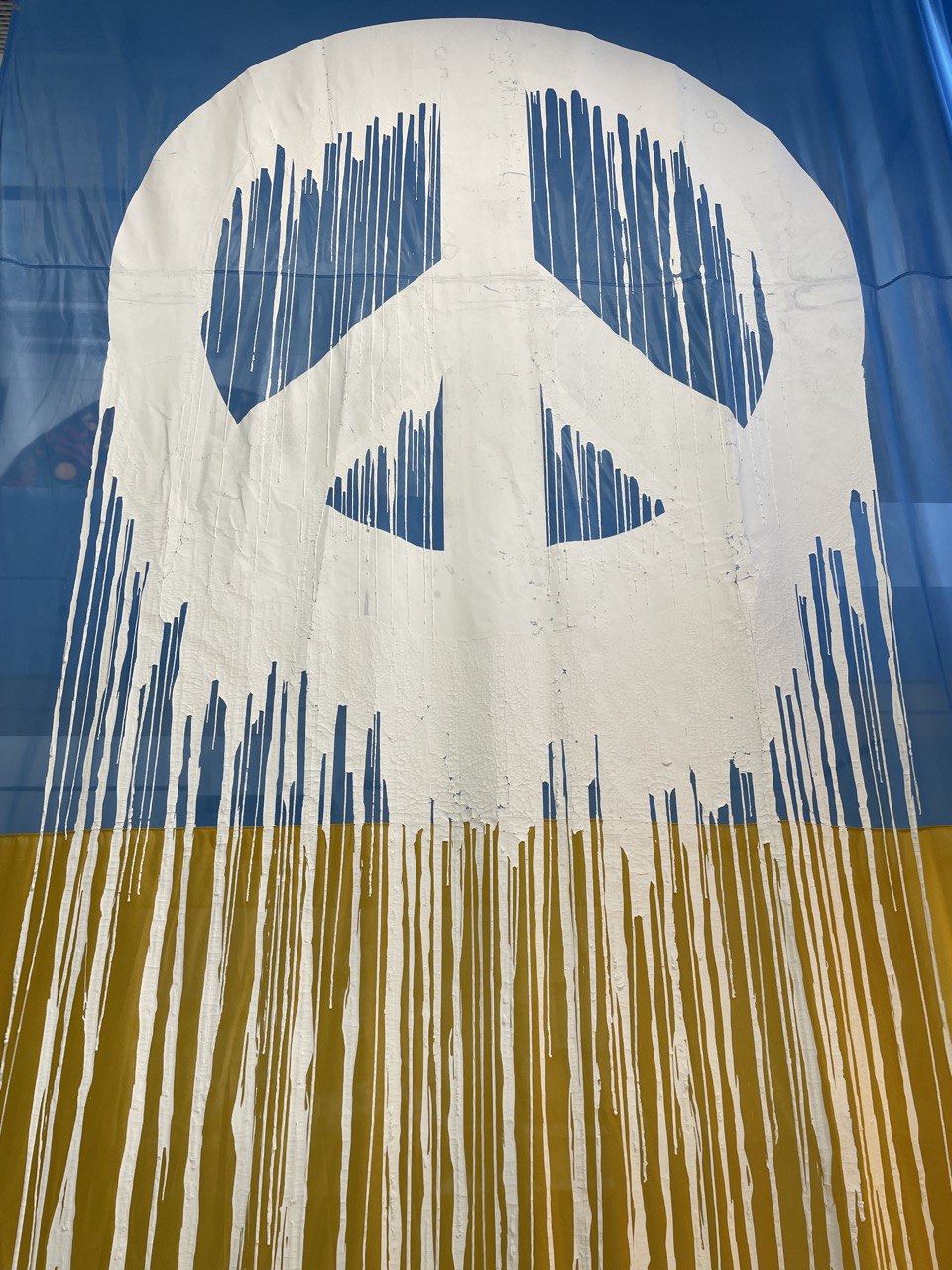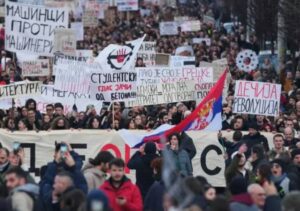Beyond Peace
Together with Bread&Roses in Bari we interviewed Alla and Yarina, two Ukrainian activists from Feminist Workshop. The interview took place on February 16, 2024 and as is normal talking about war and repressive regimes some reported facts have already undergone changes.
Municipi Sociali Bologna: Could you go back to why you wrote a manifesto for the right of resistance in response to Western feminists two years ago? Why has resistance been important from day one and what does it mean to resist after two years of war?
Yarina Feminist Workshop: We’ve written the manifesto with the intention of urging Western feminist to reexamine their privileges, understand their lack of experience and knowledge regarding colonial liberation, military conflicts, and the historical blind spots, particularly in Eastern Europe. When Western feminist write their own manifestos, it seems they often reject our right as oppressed people to speak for ourselves, address our experiences, and deny our right to self-defense and self-determination. For us, resistance is about agency, voices, and self-determination. Many individuals, especially within the Western left, frequently discuss militarism in Ukraine. However, I want to highlight that when Ukrainian lives are genuinely in danger, anti-militaristic statements may reflect a certain privilege of not having war directly impact their country. We often encounter these statements from those who lack experience with imperial oppression.
Regarding the evolution of our resistance over the past two years amid Russian attacks, the situation remains dire. We are currently striving to align with EU policies as we perceive limited alternatives. The dynamics have shifted since the beginning of the conflict when the right and left were more unified. Now, we find ourselves divided by varying views and actions. Our approach involves multitasking—supporting Ukrainian self-defense on one hand and criticizing our government to counter some illiberal policies on the other. The challenges have intensified as we navigate both our daily lives and the need to survive Russian attacks. Balancing work and personal stability have become more difficult, compounded by the collective exhaustion and disappointment in our government. Despite these hardships, we press on, addressing various aspects of our struggle simultaneously.
Alla Feminist Workshop: I sense that Ukrainians, including myself, are grappling with significant changes from the onset of the conflict until today. The most notable shift is the profound loss experienced by most of us due to the ongoing war. A recent viral post in Ukraine revealed that 78% of Ukrainians have lost someone close – friends, family, or partners. Yarina captures this sentiment well, articulating the challenge of simultaneously managing the demands of daily life, seeking employment, and coping with the inner struggle within our country, where the fight is not on pause, but continuous. We find ourselves hiding from rockets while also trying to assert our right to live. The Western feminist manifesto, in its initial version, struck me as problematic. It portrays Ukraine as almost non-existent, reduced to a mere territory and people who need defending. What stands out is the lack of interest in understanding the thoughts and needs of Ukrainians who are suffering and resisting. The manifesto seems to speak from a patronizing and privileged position, dictating what should be done for us, without seeking our input or acknowledging our agency. It’s surprising to witness the Western left, which is expected to champion the rights of the oppressed, adopting such a stance. The response from Ukrainian feminists, who have long been fighting various struggles within the country, is a natural one – asserting their existence and sharing the reality of their experiences. The frustration lies in being silenced and objectified. It’s disheartening to see the Western left, a supposed ally in the fight against authoritarianism and oppression, overlooking the voices and agency of Ukrainians. Considering the current situation, besides the tangible challenges in Ukraine, there is a growing frustration with how people perceive the country. Some express weariness with the ongoing conflict and a desire for quick solutions. It’s perplexing to witness those who are not directly affected or engaged in the struggle expressing fatigue. These sentiments raise questions about the level of understanding and empathy from those observing the situation from a distance.
Yarina, Feminist Workshop: It’s crucial to emphasize that resistance against an armed attack by an imperial country inevitably involves armed resistance. This fundamental truth is a key point addressed in the first feminist manifesto in response to the Western feminists manifesto. The plea for peace and the rejection of providing weapons to Ukraine, as mentioned in some Western narratives, is not a viable option for us. Acquiring weapons is not a matter of choice; it is a necessity. Surrendering to such demands would mean becoming a part of Russia, a compromise that is unthinkable. Even if we were to engage in negotiations with Russia, agreeing to relinquish occupied territories and the people enduring suffering there, it wouldn’t bring an end to the conflict. The root cause lies in the need for Russia to undergo demilitarization and decolonization. Any resolution must address this deeper issue, or we risk facing another full-scale invasion in the future. The imperial ambitions of Russia are deeply ingrained, and merely halting the current invasion through negotiations does not address the core problem. It’s a complex situation that requires a comprehensive and long-term strategy to ensure lasting peace and stability in the region.
Bread&Roses Bari: Reflecting on the two-year mark since the invasion, how do you conceptualize “peace” while acknowledging the rights to resistance and self-defense and western double-standard idea of solidarity? Moreover, in navigating the complex post-invasion landscape, how do you propose reconciling opposition to the invasion with the imperative to forge alternatives to the neoliberal framework promoted by the Ukrainian government too?
Alla, Feminist Workshop: I want to begin with the concept of peace, which I believe is not merely the absence of war, a military action involving guns and armies within a territory. Simplifying the idea, peace signifies no army, no military actions, but the core issue with military actions lies in the killing of civilians and soldiers, who are essentially civilians in their daily lives. This leads to the suffering and oppression of the people, fostering inequality. The notion is that without guns and armies, peace can prevail. However, examining the situation in Ukraine, the question arises: If the war were to stop and Ukrainians cease resistance, what would happen to Ukraine and its young people? Examples from 2014 to the present in the occupied territories, now referred to as the southern republics in the east of Ukraine, reveal the consequences. Before the major invasion, life in these areas seemed relatively peaceful. However, reports indicate a significant rise in inequalities. People lost jobs, access to basic rights like medical care, and even during the COVID pandemic, these territories were cut off, preventing access to vaccines and medical aid. In the absence of military actions, people are dying from poverty and the rise of various unregulated military or militia groups within these republics. Is this peace? Perhaps, but it is not the kind of peace that brings basic human rights and a normal life to those living there. The Russian army’s actions in the occupied territories post-invasion paint a grim picture, with reports of rape being used as a tool, torture chambers being created, and the violent persecution of people. Those who manage to escape or have contact with the outside world share stories of limited access to food, medical aid, constant fear, and an inability to express oneself freely. Beyond basic human needs, the occupants are denied the right to be Ukrainians and face persecution for being LGBTQ+. The concept of peace, as perceived in the West, has been deconstructed for me. It is no longer just about the absence of war or an army; perhaps it is the destructive ideas causing pain and suffering. I question what peace means now and whether it is time to redefine the concept, considering not only the absence of war but also the presence of ideas that destroy humanity in a territory. Reflecting on Europe, where peace exists despite some limitations, one can still find democracy and relative safety. However, in a scenario where Ukraine exists in peace with Russia, the meaning of peace is fundamentally altered. If you interact with children in occupied territories, you see that their accounts paint a stark picture. They describe an existence that cannot be called childhood or a peaceful one. It’s unsettling to hear children that express a desire for the Ukrainian army to liberate them, but for them, it represents the hope for a normal life. This contradicts previous notions of peace, challenging us to reconsider what it truly means and how it protects and preserves human well-being.
Yarina, Feminist Workshop: Certainly, I agree on the concept of peace and the complexities faced by Ukraine, especially when it comes to discussions about the government and liberal policies. It’s indeed surreal to engage in theoretical conversations about government structures when the immediate reality involves the uncertainty of the next day and the ongoing war. The concerns raised by Western left about certain policies seem distant from the day-to-day struggles and the urgent need for support amidst war crimes and missile attacks. Despite the challenges, it’s important to emphasize that Ukrainians, as activists and individuals with strong beliefs, have not abandoned their ideas and work. The increased difficulty in navigating these issues doesn’t diminish the commitment to the principles they hold. It’s crucial to recognize that foreign support for Ukraine doesn’t equate to supporting the Ukrainian government. The root of the conflict, as highlighted by Putin’s rhetoric, centers around denying Ukraine’s right to exist as an independent nation. Regarding the Ukrainian government, it’s acknowledged that not all Ukrainians are satisfied with it. There are concerns about various laws, such as labor laws, and efforts are being made to resist and voice opposition to these issues. Civil society in Ukraine is robust, and despite potential differences with the government, support from foreign countries is seen as necessary given the circumstances. The post-war scenario raises concerns about Ukrainian debt and potential conditions tied to it, including liberal policies. Despite the challenges, there is a collective effort to do what can be done, especially by those who have not joined the military. The ongoing commitment to work with civil society and address social issues, even beyond the immediate conflict, reflects a determination to shape a better future for Ukraine. In essence, the complexity of the situation requires making difficult choices, and while it may become even more challenging after the war, the resolve to navigate these complexities and advocate for a better future remains strong among Ukrainians.
B&R Bari: Could you elaborate on the influence of transfeminism practices within this context and their potential effects on shaping public opinion?
Alla, Feminist Workshop: It appears that feminist practices and the feminist movement are gaining momentum in Ukraine, potentially becoming more mainstream. The invasion has sparked increased interest in local contexts and various social movements, with people showing a growing curiosity about what is happening within the country. Previously, Ukrainian women tended to look towards the West or Russian feminism, and Russian feminists served as figures of inspiration for many Ukrainians. The invasion seems to have shifted the focus back to the local context, with Ukrainian feminists becoming figures of influence, even gaining attention from media and influencers. This newfound interest extends beyond political affiliations, reaching liberals and conservatives alike. Even within feminists, there is a noticeable surge in interest in feminism, as more women recognize the relevance of feminist discussions in addressing their rising responsibilities, vulnerability, and demands in the current circumstances. The increased demands on women, including their role in managing households, childcare, and voluntary work, have led to a heightened awareness of women’s rights and needs. The intersectional feminism practiced in Ukraine acknowledges that various experiences matter and should be considered in the broader conversation. This approach helps women navigate new roles and communicate their experiences more effectively. In the realm of international communication, feminist theory has proven instrumental in explaining the nuanced struggles faced by Ukrainians. It provides a framework to articulate experiences that may have been previously overlooked or silenced. By drawing parallels to historical struggles, such as the gendered dynamics within the feminist movement, Ukrainians can shed light on their unique oppression and bring attention to their voices that have been historically marginalized. Overall, it seems that Ukrainian feminists are leveraging feminist theory not only to navigate their own experiences but also to communicate these experiences effectively to the broader international community. This theoretical framework becomes a powerful tool in addressing the deep-seated colonial oppression that has persisted for centuries and finding resonance with others who may not be familiar with the intricacies of their struggle.
Yarina, Feminist Workshop: Your emphasis on making the feminist movement more inclusive and giving voice to those who are more oppressed, such as poor women, is crucial. Recognizing that the goal is not solely to advance the rights and power of a specific group, but to address the diverse needs and challenges faced by all women, is an essential aspect of building a truly equitable and inclusive movement. Acknowledging the potential consequences of post-war periods and navigating the delicate balance between advocating for human rights and addressing concerns about potential backlash is a wise approach. Remaining vigilant and realistic about the challenges ahead, without wearing “pink glasses,” is essential. Your awareness of the potential threats to feminist movements during times of increased militarization and potential anti-rights sentiments reflects a pragmatic and strategic mindset. While there may be positive shifts in public opinion, especially in supporting LGBTQI rights, it’s crucial not to assume that these trends will continue indefinitely. While there is a noticeable increase in support for LGBTQI individuals, such as acceptance of same-sex marriages and adoption rights, we should not assume this trend is irreversible. We’ve seen shifts in societal attitudes, and our vigilance is essential. We must be prepared for potential setbacks, such as attempts to restrict reproductive rights, which are becoming evident globally, especially in times of conflict. Your awareness of global and European tendencies, especially in times of war, adds depth to the understanding of the dynamic nature of human rights movements. We prioritize amplifying the voices of the most oppressed, navigate the potential challenges arising from post-war contexts, and remain vigilant regarding LGBTQI rights. Our goal is to foster lasting change while recognizing the uncertainties that persist in the pursuit of equality.
Municipi Sociali Bologna: Shifting the focus to Russia, did the contacts with Russian activists somehow grow or are they at zero level? Do you see the elections in Russia as something that is linked to the offensive and the attacks that are going in this really moment?
Yarina, Feminist Workshop: I had contacts with different Russian feminists, also with some of them who left Russia. They make a great job supporting Ukraine or for example talking about sending weapons to Ukraine. But at the same time many Russian feminists engaged in antiwar resistance often reproduce imperial prejudices.
Then, also in this case there is a problem regarding western observers: everyone’s so excited about Russian opposition but the same ones are silent about Ukrainian resistance. I think it’s because Russian resistance is convenient to support because Russians stand up against their government and they don’t have weapons. Literally, everything about this opposition is convenient for the western left. On the other hand, Ukrainian resistance and Ukrainians are often portrayed only as victims, or nationalists, or as a militarist country, and this is not so convenient for the western left. For me it’s awful, because there are big differences between Russian opposition and Ukrainian resistance. It’s not Russians that are under the attack of an imperial government and it’s not Russia who is fighting for self-determination. So, even if I think that Russian opposition is doing a great job, I’m concerned about the way it’s being discussed in international dialogues and international platforms.
About Russian elections, it’s time to understand that you can’t destroy the regime by elections, because there are no elections in Russia. A lot of people that are in Russian opposition actually oppose to Putin and some maybe even oppose the regime, but they not always oppose its imperialism. Therefore, I don’t think it is actually possible to win this election, but even if if someone from opposition wins this election I have no hope that we would have our territory back, or at least not every occupied territory.
Again, I don’t know what Russians should do or what Russian antiwar resistance should do in this case. I don’t have an answer on that and for now I don’t have any hope about elections.
Alla, Feminist Workshop: I agree with Yarina that Russian elections, for many years have only been a big show for the world and for Russians itself. For me it’s surprising to see that there’s still people inside Russia who believe in elections or try to believe in it, or that are so naive to say, quoting one of the opposers who tried to participate, “these elections won’t work and Putin will win but maybe we could show that we are against”. Too many things happened in this ten years and particularly in these two years of full scale invasion to believe that the person who gave the order to invade the Ukraine, to destroy the cities and to do the all these crimes which we saw, would now say “I hear you now, so I’m leaving the place”; that’s very naïve, but maybe it’s also useful for them to be so naïve, because if you’re so naive you don’t need to act in a way as if something should be changed in Russia. Especially for people in privileged cities like Moscow and Saint Petersburg, where there are a lot of sources, for example, the fact that it needs to change something from inside is probably scary and unpleasant, so it’s easier to play in this game for them. Also, I checked who are in the opposition in these elections and none of them is really opposing the ideas of imperial Russia. All the opposition leaders do not lead an ideological opposition. They are the same that had imperial desires and imperial mindset, but they are against Putin. They don’t want war, but that’s because war makes Russia poor and people in Russia are dying: that’s why they see war as bad, not because Ukraine is invaded, not because Ukraine is occupied and not because Russia is a huge empire that brings destruction not only to Ukraine but to all other countries who were part of Russian empire. Shulman, Duntsova or Nadezhdin, for example, are people who accepted annexation, who accepted occupation of Donbas regions in 2014. This “opposition” bring no help to Ukraine and anyway the only way for them to have a power will be military victory of Ukraine and defeat of the russian army.
About feminist activists, the relationship has never been at zero level. There are Ukrainian activists who are still in contact with Russian colleagues and for whom it’s ok to still develop these contacts. There are two sides of this, one more political and one more personal. On the political side, we can apply the feminist optic on this topic: it feels that instead of giving a voice to women who are suffering, the voice is given to the men who are sharing how patriarchy is also not a paradise for them. They’re not giving the mic and the attention to those who are suffering and who are the direct object of oppression. The voice is instead given to the ones from the oppressors who are explaining what is wrong and what others should reconsider. It would be grate for the Russian feminists if they would give space to Ukrainian ones, if they would promote the Ukrainian struggle. Now it seems that Russian feminists are promoting Russian problems and looking to the Ukrainian war just because it’s also part of their liberation. To have a free Russia, Russian regime should be destroyed and it is Ukrainian army which is doing it. For now, at least from my side, I don’t see a lot of rethinking their own imperial narratives inside their own movements. Ethnic minorities from Russia are also very critical about this main tendency, because it is very centralized on Moscow activists but Russia is not only made from big cities, there are a lot of feminist activists from ethnic minorities in Russia who have no voice and whose voices are taken over by more sourced and powered Russians.
I also think that Russian feminist movement wants to respond to the expectations of the western left, making them easier to follow. There’s a lot of nice stories which they try to present, for example “Russian women against mobilization” that is published now a lot; as a Ukrainian, the meaning of this is a big question. It means that Russian women on these protests are against their men being in the frontline because they are their husbands, brothers and sons. However, if you look on the Russian banners, they are about “we need demobilization”, which means that their men should return back, while others are going to Ukraine, not “russian troops go out of Ukraine”.
On a personal level it often happens that we feel patronized also talking with activists. There are Ukrainian activists that are doing a great job bringing mutual help to both sides, but precisely in these cases there is still a lot of work to be done to have better communication.
Municipi Sociali Bologna: Are you afraid of the new offensive of Russia? Do you think that what is happening is opening a new phase of this war?
Yarina, Feminist Workshop: The fear of the Russian advance is something that always was and always is, because we don’t know how the advance progresses and we can’t predict how it will progress, so there is always this fear, even if we get used to it. We always have these times when we start to fear a lot and fear grows. It’s happening and it happened many times during these two years, it’s like an escalation of fear in society, and then the escalation drops again. It’s something that is always in our minds.
Alla, Feminist Workshop: There is a big fear because they are advancing. What we hear these days is that there is a big fight in Avdiivka, that the city is basically becoming a second
Bakhmut, that on that frontline a lot of Ukrainian soldiers are dying and right now that the city is taken to the ground. The fear is about how far they will go.
There’s also another kind of fear, that the war will be frozen. In this case it wouldn’t mean that Russia will no longer attack. It probably wouldn’t attack in one or two years, because they need resources to make a war, but we would need to be prepared for another set of attacks.
More and more of my friends who are not serving yet see a necessity to join the army. Russians are recruiting enormously people both from the country and foreigners, from Syria for example and from other countries. They do not really value the life of their soldiers, so the number of people whom they just throw on the field it’s enormous and if Ukraine will mobilize a lot of soldiers it wouldn’t still be an equal fight.
There is still the hope for military aid. European countries announced they would have sent a lot of aids last year, but from what they announce only little part came. Spain, if I’m not mistaken, said that they would have sent a number of tanks, but from these amounts of tanks only one came because all others were not working. I guess for Europeans it seems that they sent many aids and now they’re seeing no result, but in the reality the majority of this aid didn’t arrive and even when it arrived, it was not enough. That’s the main problem: we need a lot of military support in order to resist what is happening right now and in order to think if it’s possible to finish it. It’s a bit of a pessimistic view and I guess a lot of Ukrainians are now feeling this way, with the fear and the frustration of what’s happening.
Municipi Sociali Bologna: In many Western countries ceasefire is the message that is spreading regarding the war in Palestine. Do you think that the message of ceasefire would make sense coming from Ukraine?
Yarina, Feminist Workshop: About Palestine and ceasefire, I think that it’s a different situation so we can’t compare the two. Of course, we want to support Palestine, we want to support the Palestinian people. But when we talk about Palestine, we have to consider that Hamas has the power, and then that radical terrorist organizations killed civilians and that Israel are killing civilians. In that situation, ceasefire seems to be better. In Ukraine, however, we have a lot of occupied territories for now. I’m afraid that if we just stop at this point we will be in this frozen spot for another 10 years. I don’t think that this is what Ukrainians actually want.
Alla, Feminist Workshop:
I think the answer is already in the question. For the Palestine it is Palestinian people who are calling for the ceasefire. In Ukraine people are calling for the military aid. Ceasefire for Ukraine will mean continuation of people suffering without any resistance to the oppressor and an existential threat. I think people should hear what are the ones who are suffering calling for and support them in their needs. Also, in case of Ukraine, the call and pressure to “end the war” should be applied to Russia, the oppressor and aggressor. Instead the call to stop the war in the world is usually addressed to Ukrainians, who are the defending themselves and fight for their liberation.
Yarina, Feminist Workshop: Also the fact that Zelensky supported Israel influenced Europeans’ views on Ukrainians. But for example we are actually trying to talk about Palestine in Ukraine. We’re trying to give voices to other oppressed people, because when we talk about occupation or imperial countries, it’s not only about us.




